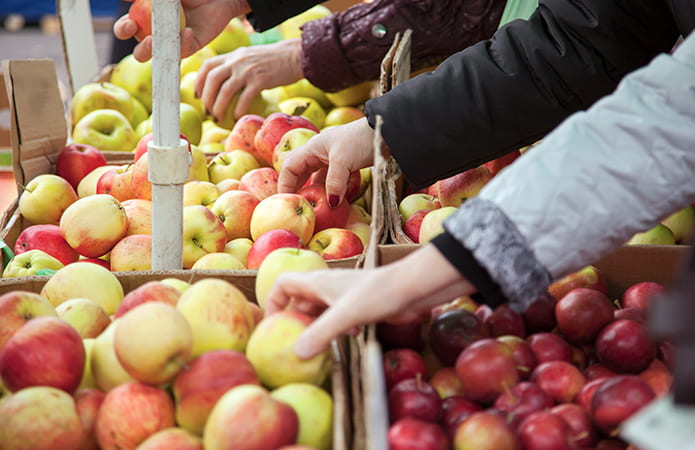Marshall University — Huntington, WV
IMPROVING DIABETES CARE FOR UNDERSERVED COMMUNITIES IN HUNTINGTON, WV
Marshall University is working to establish a system that fosters collaboration between local health clinics and community resources to better serve people with diabetes from rural communities in West Virginia, Kentucky, and Ohio who have limited access to care.
The program is implementing a sustainable care coordination model that includes CHWs on the care team who conduct home visits and connect people with diabetes to community services that address the social determinants of health. The University is also exploring, with the Center for Health Law & Policy Innovation at Harvard University, options for financing this model in a sustainable way.

STRENGTHEN PRIMARY CARE & BUILD SUSTAINABLE PARTNERSHIPS
OUR INTERVENTION APPROACH

Transform the delivery of rural primary care by implementing a sustainable care coordination model for high risk diabetes patients that includes community health workers (CHWs) on the care team
- Work with clinical partners in distressed counties in Ohio and Kentucky to replicate care coordination model developed in rural West Virginia.
- Enroll high risk patients with diabetes in care coordination programs
- Calculate savings from claims data for patients enrolled in care coordination by the end of year five
Link clinical interventions with existing multilevel health care programs that have been developed by the local diabetes coalition in these rural communities
- Establish a system for clinic-community collaboration that directly engages patients in community programs that address medical, social, and environmental determinants of health by the end of year two
Establish a health insurance reimbursement mechanism that provides sustainable funding for care coordination and CHWs by the end of year five
Marshall University and their clinical partners are focused on supporting unmet medical and social needs:
- Mountain Comprehensive Health Corporation and the City of Whitesburg/Letcher County Farmer’s Market coordinate the Food Farmacy program, which has provided families and individuals who are screened for social needs and referred by clinical staff with “prescriptions” for fresh, local fruits and vegetables redeemable at the market. The program supports local farmers by increasing demand for their products. Community health workers facilitated Farmacy deliveries through socially distant porch visits so that program participants could maintain access to healthy foods and continue support for local farmers during the pandemic.

Deb Koester
Assistant Professor,
Department of Family and Community Health
Dr. Deb Koester is an Assistant Professor and Director of the Division of Community Health in the Department of Family and Community Health at the Joan C. Edwards School of Medicine, Marshall Health/Marshall University. She has also served as Executive Director of the nonprofit organization, West Virginia Local Health, Inc. (WVLHI) since 2013. In her roles, she leads teams at Marshall focused on chronic disease, diabetes coalitions, community health workers, and expanded school mental health. She also works closely with all 48 local health departments in West Virginia and coordinates the West Virginia Association of Local Health Departments. Her background includes a Ph.D. in public health and a Doctorate of Nursing Practice in community health. Dr. Koester previously served as a contractor to the CDC Office for State, Tribal, Local and Territorial Support (OSTLTS) and as Population Health Initiatives Program Manager for Purdue University’s Healthcare Advisors. She has worked with more than 200 state and local health departments, community health care organizations and hospitals, and community coalitions.

Copyright © 2021 — The University of Chicago
